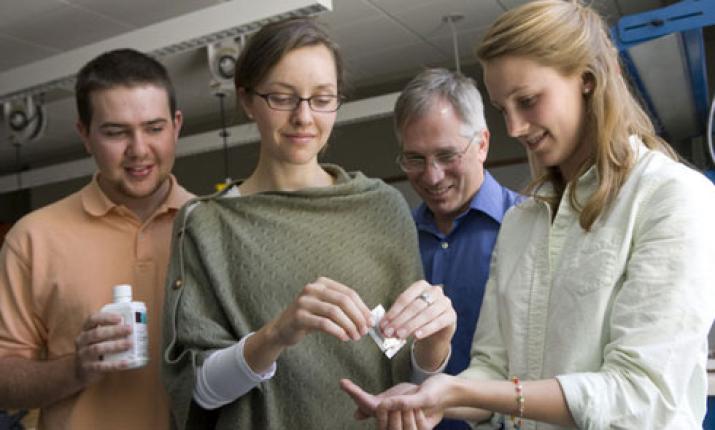The World Health Organization has selected the Pratt Pouch as one of the top ten innovative health technologies of the year for use in low-resource settings around the world. Developed by Duke’s Pratt School of Engineering and DGHI faculty member Robert Malkin, the Pratt Pouch helps stop the spread of disease from HIV-infected mothers to newborns. The innovative ketchup packet-like pouch has a pre-measured dose of antiretroviral medication that can be given to the newborn within the first 24 hours of life. When newborns receive antiretroviral drugs shortly after birth, their chances of contracting HIV are significantly decreased.
“We are really excited to be selected by the World Health Organization,” said Malkin. “We are actively discussing the wider dissemination of the pouch with Ministries of Health in several countries. I know that we will be able to use this recognition to more convincingly explain the benefits of the pouch.”
With insufficient availability of and access to appropriate and affordable health technologies in low- and middle-income countries, the WHO’s Innovative Medical Technologies Initiative recognizes the year’s most promising technologies currently available or under development that address global health challenges.
The pouch has a plastic-lined foil and extended shelf-life of one year, which makes it optimal for low-resource settings where women are more likely to deliver their babies at home without access to drugs. It also does not require any particular infrastructure, since it can be stored and torn open under most conditions.
The pouch is still under development with clinical trials and studies under way, including the feasibility of distributing the packet to HIV-infected mothers during the third trimester for intended delivery at home or if they are unable to reach a medical facility.
The Pratt Pouch was developed by Pratt undergraduate students as well as students in the Pratt Fellows Program and the DHT-Lab Fellows Program. The device was recognized by USAID’s Saving Lives at Birth Grand Challenge in 2011.



